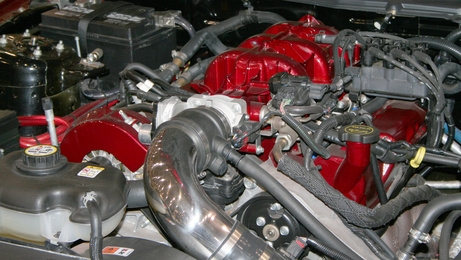
Gas mileage is an important factor in the cost of operating an automobile. Though often overlooked, the PCV valve plays a key role in helping an engine to operate at peak efficiency and decreasing fuel consumption.
During combustion, some exhaust escapes past the cylinder rings into the engine instead of going through the exhaust valve and into the exhaust system. Before PCV systems, this exhaust would simply enter the atmosphere. When the exhaust gases build up inside the engine, the PCV valve opens and directs the gases back into the cylinders through the air intake.
The exhaust gases redirected from the PCV valve travel into the engine's air intake. When the PCV valve fails to work, it reduces the amount of air in the air-fuel mixture used by the engine. This reduction in air results in an overly rich fuel mixture that burns more fuel than needed to operate the engine properly.
A defective PCV valve will cause the buildup of exhaust gases and moisture in the engine; sludge deposits in the engine can occur as a side effect. These deposits will increase the mechanical resistance inside the engine, reduce engine efficiency and increase fuel consumption.